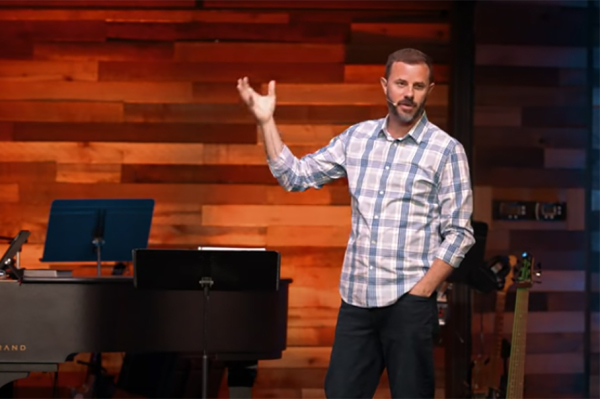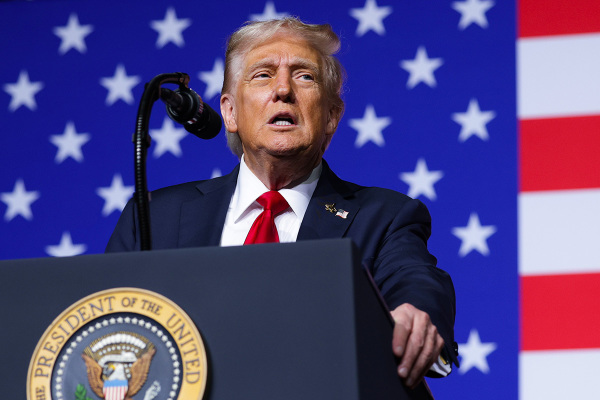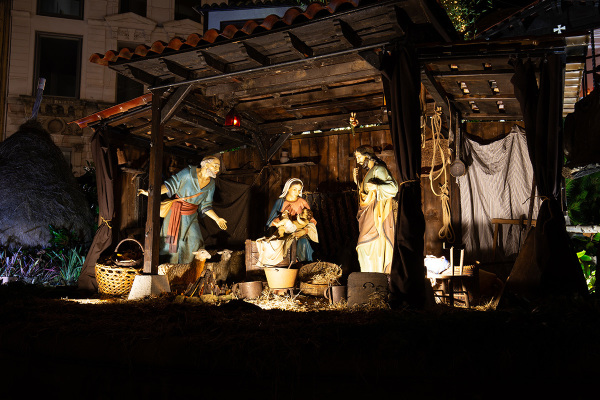Minister Optimistic about South Sudan's Future
Some people thought it might never happen; others expected widespread violence. Yet to the world's surprise – and relief – millions of Southern Sudanese were able to cast their votes in peace in the historic weeklong referendum.
The word on James' lips now is "thankful."
He is thankful to God for bringing the Southern Sudanese this far; he is thankful for a peaceful referendum; he is thankful to Presidents Omar al-Bashir in the North and Salva Kiir in the South for their commitment to the Comprehensive Peace Agreement, the agreement that finally ended decades of brutal civil war.
"We are so thankful even for the government of the North because they worked had to make sure that the referendum would take place and even to provide security for the thousands of Southern Sudanese exiting to the South," says James, a minister in the Africa Inland Church in Sudan.
"It's a message to the world that war is not a solution."
Now the people of South Sudan are looking expectantly to a future of democracy, self-determination and, most importantly, peace.
The wounds of the recent past may still be fresh in their minds, but James believes the success of the referendum is a "good indication" that the world's newest nation will not return to war.
"Sudanese are now taking a different approach to many of the issues facing them. People lost their lives and they know that is not good for the nation."
Darfur has been marred by civil war for much of the last decade and scores have been killed in skirmishes in the contested oil-rich region of Abyei in recent weeks, but even these difficulties can be resolved if leaders sit down and talk, James believes.
"All the conflict that exists can be overcome by dialogue. The Sudanese people are trying to tell the world that the language that can be spoken now is not the language of guns," he says.
"There are new generations who can sit at the table and iron out their differences."
Contemplating the future, James acknowledges that there may be disputes among Southern Sudanese from time to time over certain issues, but there is a sense of responsibility towards the new nation. The people have committed themselves to the good of the country, to reconciling with one another, and to building a nation that is based on respect for human rights, peaceful relations, and justice, he says.
"The country that is being born has not been brought about by guns. It has not been brought about by politicians. It has been brought about by the people of the South so the Southern Sudanese are owning their own country."
Yet his hope is not only for the people of South Sudan. It is also for the people in the North. They too need peace, says James.
"Even the Northern Sudanese need to enjoy peace in the country. What we are talking about now is peace, justice and equality that will make Sudan both North and South strong."
With that in mind, the first priority of the church is to preserve the peace that has been gained and do what it can to help build the new nation. In the short-term, that includes feeding and sheltering the hundreds of thousands of people who have arrived from the North in recent months. In the long-term, it means building - from scratch - an entire infrastructure of healthcare, education, transport, governance, industry and everything else a flourishing nation needs.
Neither the church nor the government is in the position to meet the challenges alone, he admits.
"To create a new nation is not an easy thing. It is like a newborn baby, it will struggle to grow. That is why we are urging the international community that has accompanied us through the CPA not to stop there, but to continue to accompany us until this new nation is built and nourished and healed, so that we can go far and achieve what God wants us to achieve."
For the church in Sudan, the challenges go beyond meeting the practical needs of the people. There is still some uncertainty as to how the church will look in the new Sudan and while there is freedom in the South, the challenge lies in the North, where al-Bashir has determined to build an Islamic state.
For the time being, the church in the North and those Christians who have chosen to remain there are being encouraged to "work hard," continue preaching the Gospel, and fulfill their prophetic role of promoting peace and justice among the people.
"The church has no boundaries, nobody will destroy the church of God.
"I want to assure them that the church will be there and it is not going anywhere, because the church has nothing to do with the North or South.
"The church has to do with the Sudanese and there are many Sudanese who are northerners and Christians and they have the right to be in the North and enjoy freedom of worship."
With Christians in the North feeling "isolated" and the church in the South called upon to meet the needs of so many, James is hoping that the global church community will come to Sudan, stand alongside the church, and encourage them for the road ahead.
He concludes: "I would welcome people to come. Just come and put one stone in to help rebuild the nation. The future of Sudan is so bright but we can't build it alone because we have nothing. We need friends - good friends - to come and help us to rebuild Southern Sudan."





















